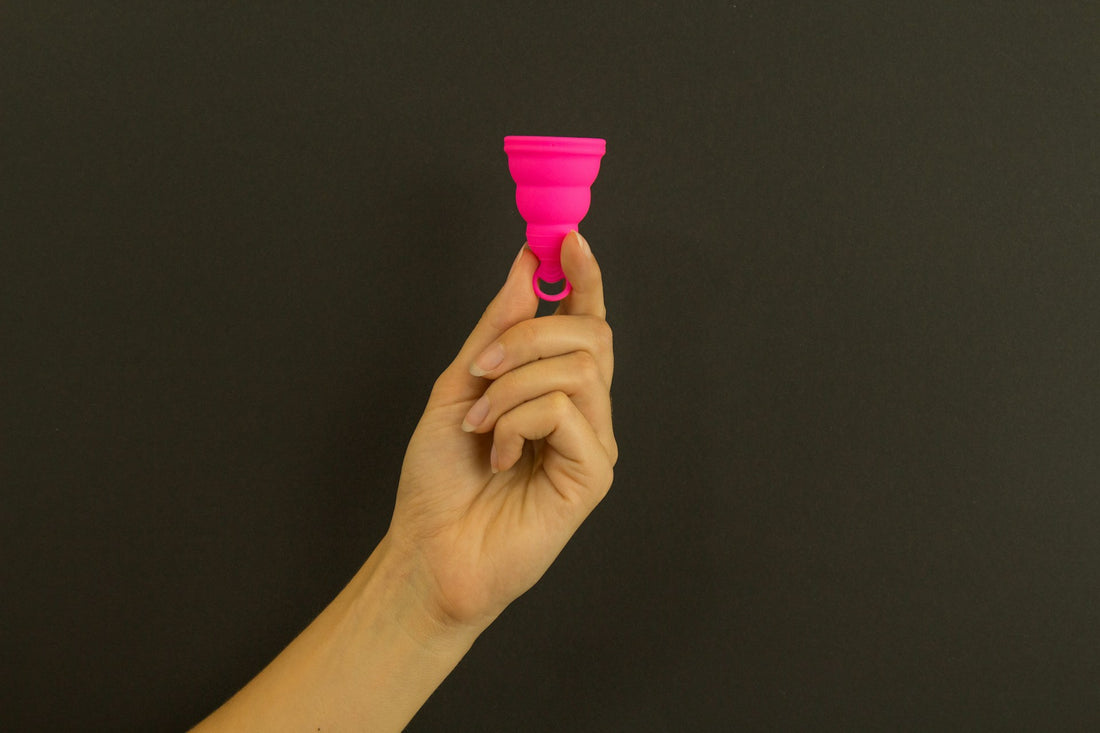Menstruation, a natural process experienced by people with uteruses, is often shrouded in mystery and misconceptions. From its significance in reproductive health to the physical and emotional changes it brings, menstruation plays a vital role in the lives of individuals worldwide.
In this comprehensive guide, we delve into the fundamentals of menstruation, addressing common questions and shedding light on various aspects of this monthly occurrence. Whether you're navigating your first period or seeking a deeper understanding of menstrual health, join us on a journey to demystify menstruation and empower individuals to embrace this natural aspect of their bodies.
1. What is menstruation?
Menstruation is a natural process in females where the body sheds the lining of the uterus monthly, preparing for a potential pregnancy. This shedding occurs as blood and tissue through the vagina, commonly known as a period. It's a crucial part of the menstrual cycle, which typically lasts about 28 days, although it can vary from person to person.
2. Does menstruation have a smell?
Menstruation should not have a distinct odor. When menstrual blood is exposed to air, it may develop an odor. However, when absorbed by products like sanitary pads or tampons, it remains largely odorless.
However, if you feel a peculiar smell, especially a fishy smell, you should pay attention to whether you are suffering from certain gynecological diseases.
Vaginal Inflammation
The presence of a foul fishy odor during menstruation may indicate vaginal inflammation. Alongside the odor, symptoms such as vaginal burning, pain, itching, and external genitalia moisture may also occur. Vaginal inflammation caused by anaerobic bacteria infection, trichomonas infection, or other bacterial infections can result in this foul odor during menstruation.
Menstrual Blood, Sweat, and Secretions
The unpleasant odor experienced by women during menstruation is typically due to the mixture of menstrual blood, secretions from the endometrium and sebaceous glands, as well as sweat, resulting in a noticeable odor.
Pelvic Inflammatory Disease (PID)
Pelvic inflammatory disease (PID) may initially not have an odor. However, as the inflammation worsens, women may experience purulent discharge from the genital area, which causes the odor.
It's essential to maintain proper hygiene during menstruation by changing sanitary products regularly to minimize any potential odor.
3. Is menstruation painful?
Menstruation itself is not painful, but some individuals may experience discomfort due to cramps or other symptoms. Hormonal changes trigger the uterus to contract and shed its lining, leading to cramping for some women. Additionally, hormonal fluctuations can cause mood swings, fatigue, headaches, and bloating in others, contributing to overall discomfort.
4. Can I shower or bathe during menstruation?
Yes, maintaining good hygiene during menstruation is essential. Showering or bathing is perfectly safe and can help you feel fresh and clean. It's crucial to use mild, fragrance-free soap and water to wash the genital area gently to avoid irritation, especially during menstruation when the skin may be more sensitive.
5. Are there things I can't do during menstruation?
Your period shouldn't stop you from doing your usual activities. You can still go to school, do chores, hang out with friends, participate in sports, and do everything you normally do. However, it's essential to listen to your body and take breaks as needed, especially if you're experiencing discomfort or fatigue.For the most sensitive things,we must pay attention to them:
Drinking Alcohol
Drinking alcohol during menstruation increases the risk of liver damage or alcohol poisoning for women. This is because during the menstrual period, women's enzyme activity for alcohol metabolism decreases, resulting in slower alcohol excretion from the bloodstream. Excessive alcohol consumption can prolong intoxication and worsen symptoms, leading to liver damage or alcohol poisoning. Additionally, menstruation weakens the body and lowers resistance, and alcohol consumption accelerates blood circulation, potentially leading to increased menstrual flow.
Wearing Tight Pants
Wearing overly tight pants hinders blood circulation in the pelvic area, especially during menstruation. Tight pants can increase the risk of infections in women due to the confined and humid environment they create.
Swimming, Hot Springs, and Sitting Baths
During menstruation, the cervix is slightly open to allow menstrual blood to flow out, weakening the natural defense mechanisms of the reproductive tract. Engaging in activities such as swimming or soaking in hot springs during menstruation may allow opportunistic pathogens to cause infections in the external genitalia, vagina, cervix, uterus, and even the adnexa. Additionally, sitting baths should be avoided as bathwater may flow back into the vagina, increasing the risk of infection.
6. How much blood do I lose during menstruation?
Generally speaking, the duration of menstruation for women is between 2 to 7 days, with most lasting between 3 to 5 days. During this time, the amount of blood lost per menstrual period typically ranges from 5 to 80 milliliters. If the amount of blood lost per menstrual period is less than 5 milliliters, it is considered to be hypomenorrhea. The normal range of menstrual blood loss falls within this range and is typically considered a normal physiological phenomenon for most women.
It's important to keep track of your menstrual flow and consult a healthcare provider if you experience unusually heavy bleeding, as it could indicate an underlying health issue.
7. When will menstruation permanently stop?
The age at which women experience menopause is typically around 50 years old, with menopause occurring between the ages of 45 and 55 being considered normal. As women age, their body functions gradually decline, and ovarian function diminishes, leading to menopause, clinically referred to as "menopause." Menopause is a normal physiological phenomenon that every woman will go through. Here are some symptoms that women may experience before menopause:
1. Menstrual irregularities:
Before menopause, women's menstrual cycles may become irregular, such as delayed periods, decreasing menstrual flow, or longer intervals between periods. The previous 28-day menstrual cycle may now occur every two to three months or even longer until complete cessation of menstruation.
2. Emotional instability:
Women approaching menopause may experience hormonal fluctuations due to decreased estrogen levels, leading to emotional instability characterized by irritability, anxiety, tension, and suspicion.
3. Deterioration of skin:
After the age of 40, estrogen levels begin to decline, accelerating skin aging. After the age of 50, estrogen secretion significantly decreases, causing accelerated skin aging, decreased skin elasticity, dullness, and increased wrinkles and pigmentation.
4. Hot flashes and insomnia:
Women may experience hot flashes and insomnia before menopause. Hot flashes and night sweats typically start from the chest and spread to the neck, face, and then throughout the body, lasting from a few seconds to several minutes. Severe cases may involve sweating at night, making it difficult to fall asleep and affecting sleep quality.
5. Osteoporosis:
Before menopause, low estrogen levels in women accelerate bone loss. Research has shown that women lose bone mass every year before the age of 50 or menopause, leading to symptoms of osteoporosis, reducing weight-bearing capacity, and predisposing women to bone pain, joint pain, chest tightness, and fractures.
8. Why is menstruation called menstruation?
The term "menstruation" comes from the Latin word "menses," which translates to "month." Menstruation occurs monthly as part of the menstrual cycle, reflecting the cyclical nature of female reproductive health.
9. Is premenstrual syndrome (PMS) real?
Yes, PMS is real. Some women may be more sensitive to changes in hormone levels, leading to increased symptoms like sadness, irritability, and depression. PMS typically occurs in the days or weeks leading up to menstruation and can vary in severity from person to person. It's essential to practice self-care and seek support from healthcare providers or loved ones if experiencing significant PMS symptoms.
10. Can I get pregnant during my period?
Yes, you can get pregnant at any time, even during menstruation. While the likelihood of conception is lower during menstruation, it's still possible, especially if you have a shorter menstrual cycle. It's important to use birth control if you don't want to conceive and practice safe sex to prevent unintended pregnancies and sexually transmitted infections.
11. Does using a tampon hurt?
For most women, using a tampon does not hurt. However, if it does, don't force it, especially if it's your first time using one. Consider trying a lighter absorbency tampon or using an alternative menstrual product, such as pads or menstrual cups, if tampons are uncomfortable. It's essential to feel comfortable and confident with the menstrual products you choose to use.
12. How long should my period last?
For most women, periods last 3 to 5 days, but this can vary. Some women may experience shorter or longer periods, which can be influenced by factors like age, hormonal fluctuations, and underlying health conditions. It's essential to track your menstrual cycle and consult a healthcare provider if you experience irregularities or prolonged bleeding, as it could indicate an underlying health issue.
13. Why do I crave junk food during my period?
Hormonal fluctuations may contribute to cravings for foods like chocolate and potato chips during menstruation. Additionally, emotional changes and stress levels can influence food cravings and eating habits. Opting for healthier alternatives like fruits, vegetables, and whole grains can help satisfy cravings while providing essential nutrients to support overall health and well-being during menstruation.
14. How can I control PMS symptoms?
Regular exercise, reducing salt and caffeine intake, and talking to your doctor about medication options may help alleviate PMS symptoms. It's essential to practice self-care and prioritize activities that promote relaxation and stress management during menstruation to support emotional and physical well-being.
15. A period means I'm not pregnant?
Possibly but not certainly. Some women may still experience bleeding early in pregnancy, known as implantation bleeding. This bleeding can be mistaken for a regular period but is typically lighter and shorter in duration. If bleeding seems irregular or if you experience symptoms like nausea, fatigue, or breast tenderness, consult your doctor or take a pregnancy test to rule out pregnancy.
In conclusion, menstruation is a normal and essential aspect of reproductive health, affecting individuals across the lifespan. By fostering open conversations, debunking myths, and providing accurate information, we can promote menstrual health literacy and support individuals in embracing their menstrual cycles with confidence and dignity.
Let us continue to advocate for menstrual equity, access to menstrual products, and comprehensive menstrual education to ensure that menstruation is no longer a taboo subject but rather celebrated as a natural and empowering phenomenon in the lives of all individuals.

